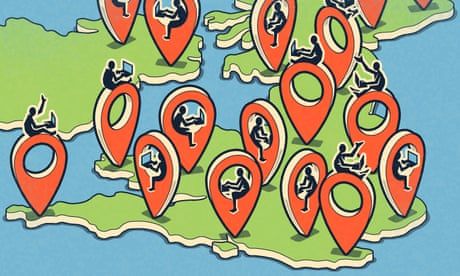
It’s free, it’s sensible and it makes workers happy. The government needs to accept that this is the new normal
You would be hard-pressed to find a single positive side-effect of the pandemic. If there is one, it is the growing numbers of people who now work from home. Half of workers work from home for at least part of the week now, and many workplaces have thrived because of it. Zoom meetings save time and wasteful travel, employers are free to hire talent from anywhere in the country, and employees have escaped escalating property prices in London and steep commuting costs. Working from home (WFH) has been a boon for the climate, too; according to one US study, two to four days of remote working a week lowers carbon emissions by between 11% and 29%.
Yet WFH is now coming under accelerating attack. JP Morgan will now require employees to spend five days a week in the office and other big companies may soon follow suit. A perverse strain of rightwing thought opposes almost any social progress that improves other people’s lives. This Scrooge-like instinct yearns to make work as grindingly hard and low-paid as possible. Recall Jacob Rees-Mogg pacing civil service offices like the Child Catcher, leaving “sorry you were out when I visited” notes on employees’ desks in 2022. The same age-old sentiment prompted the CBI chair, Rupert Soames, to savage Labour’s flagship anti-gig economy employment rights bill on BBC Radio 4’s Today programme yesterday, warning that the new bill would force businesses to let people go.
Continue reading...